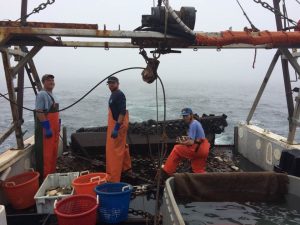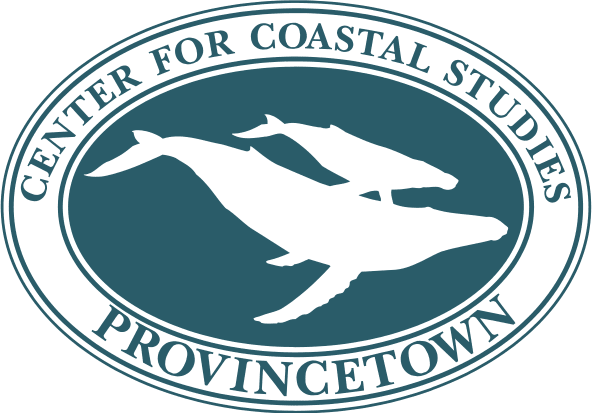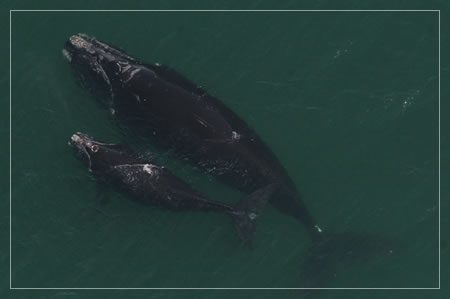Marine Fisheries Research

L-R: Provincetown, MA fisherman Eric “Rocky” Rego, CCS Marine Fisheries Research Program director Owen Nichols, and Massachusetts Division of Marine Fisheries biologist Dave Chosid pause for the camera during a research trip on board a sea scallop fishing vessel. Photo: Beau Gribbin
The goals of the Center’s Marine Fisheries Research (CCSMFR) program are to foster collaboration and understanding between fishermen and scientists and conduct cooperative research with a focus on scientific and policy issues confronting Cape Cod fishermen and shellfish growers. The program is directed by Owen Nichols, a Ph.D. candidate at the University of Massachusetts School for Marine Science and Technology (SMAST).
There are many aspects of fisheries biology, ecology, and oceanography that are poorly understood and yet crucial to an accurate understanding of how fishing and other human activities affect the marine ecosystem and how best to manage fishing activity. Working together, fishermen can combine their skills and knowledge with the tools and techniques employed by scientists to conduct field research aimed at filling gaps in our knowledge and providing managers with sound science on which to base management decisions. The Marine Fisheries Research program conducts research on a broad array of topics, including fishing gear design, environmental and climate effects on fish/invertebrate distribution, fisheries habitat investigations, and marine mammal/fisheries interactions.
Outreach is conducted among Provincetown and outer Cape fishermen and shellfish farmers to define key issues and build the foundation for cooperative research partnerships. Outreach efforts have been supported by Sailors’ Snug Harbor of Boston, the Cape Cod Five Cents Savings Bank Charitable Foundation, and the Newman’s Own Foundation, and has led to a variety of collaborative research projects:
Fishing Gear Research
Fisheries Habitat Investigations
Environmental Effects on Distribution of Squid and Finfish
Subtidal Shellfish Aquaculture
Seal Interactions with Fisheries
Embryonic Development and Paralarval Ecology of Squid
Other Projects:
The Marine Fisheries Research program is part of the Department of Ecology and works in collaboration with other CCS projects and programs, including the Marine Geology and Marine Policy departments and the Marine Debris program:
Marine Megavertebrates and Fishery Resources in the Nantucket Sound – Muskeget Channel Area
Outer Cape Derelict Gear Assessment and Retrieval Program
Future Directions
Program priorities for the coming years include development of novel approaches to reduce bycatch or entanglement via modified fishing and aquaculture gears, shellfish and finfish habitat studies with a focus on benthic ecology and oceanography of coastal and estuarine systems, and expanded research on environmental effects on marine species distribution and the associated implications for adaptation to climate change and fisheries management. Geographic scope of these projects will expand beyond Cape Cod to include the Gulf of Maine and beyond
Publications
Bogomolni, A., G. Early, K. Matassa, O. Nichols, and L. Sette. 2010. Gulf of Maine seals– populations, problems and priorities. Woods Hole Oceanographic Institution Technical Report 2010-06.
Nichols, O. C. 2011. Involve fishermen from the start to build strong research partnerships. Commercial Fisheries News 38 (7): 24.
Nichols, O.C., A. Bogomolni, E. Bradfield, G. Early, L. Sette, and S. Wood. 2012. Gulf of Maine seals- fisheries interactions and integrated research. Woods Hole Oceanographic Institution Technical Report 2012-06.
Nichols, O.C., E. Eldredge, and S.X. Cadrin. 2014. Gray seal behavior in a fish weir observed using Dual-frequency Identification Sonar. Â Marine Technology Society Journal 48(4): 72-78.
Nichols, O.C., H. Lind, J. Baldwin, A.R. Jackett, M. Borrelli, and P.A. Small, Jr. 2011. Site selection for sustainable aquaculture development areas: a practical mapping approach. Journal of Ocean Technology 6(3): 60-70.
Rodhouse, P.G.K., G.J. Pierce, O.C. Nichols, and 15 others. 2014. Environmental effects on cephalopod population dynamics: implications for management of fisheries. Advances in Marine Biology 67: 99-233.
For more information on this program and CCSMFR research projects email the director, Owen Nichols at [email protected]


